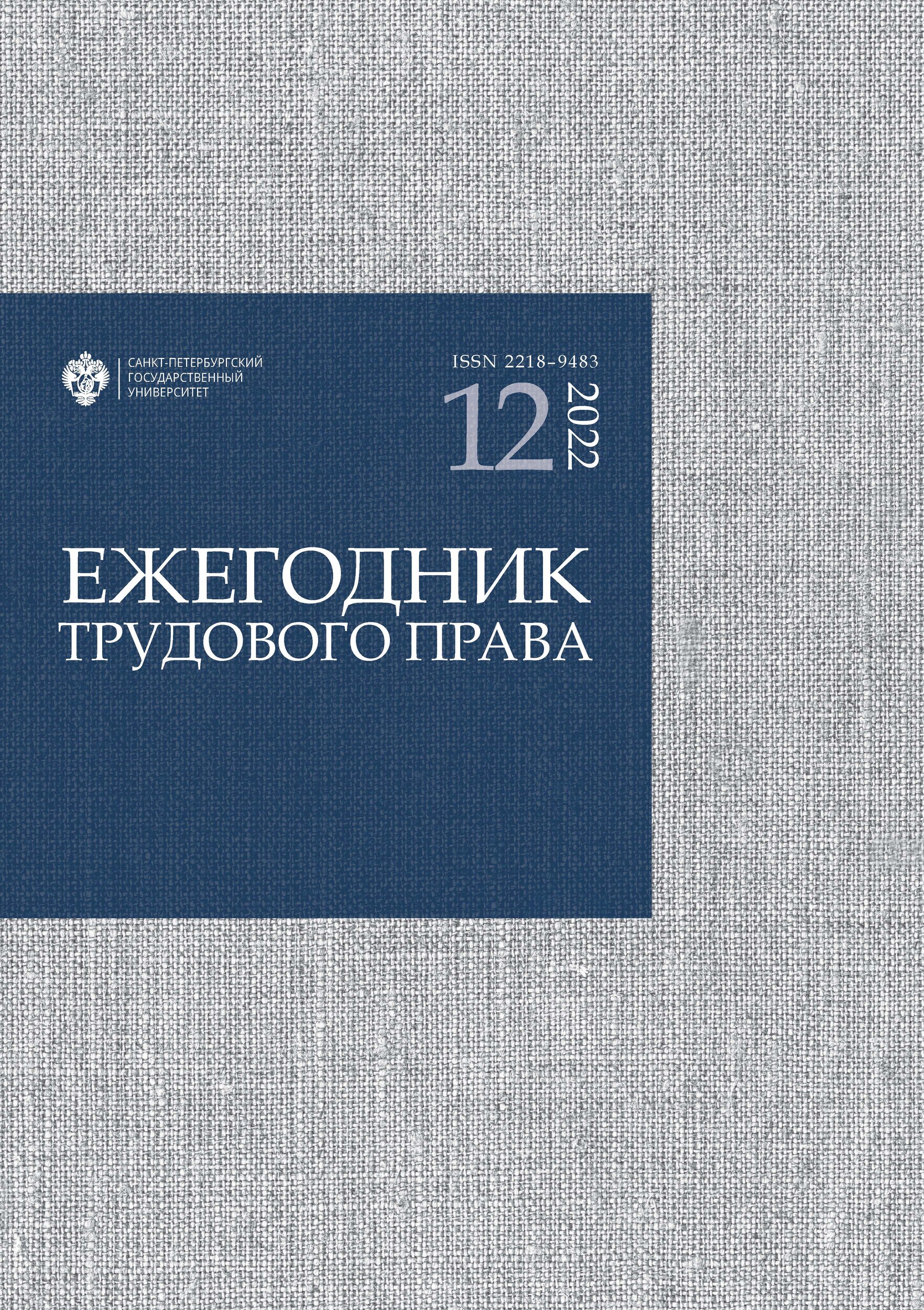Personnel policy of the state: Balance of public and private interests
DOI:
https://doi.org/10.21638/spbu32.2022.109Abstract
The article examines a complex of problems associated with the implementation of the state’s personnel policy in the context of the formation of an information society with an innovative economy based on knowledge, and when new requirements are imposed on labor resources. The content and directions of state policy cannot remain unchanged, since they are subordinated to goals and objectives that society and the state face in a certain historical period. For the formation of an effective personnel policy, the analysis of historical experience is of great importance, since only taking into account both positive and negative experiences can we find the best ways to solve existing problems. The article substantiates the provisions that the state’s personnel policy should be based on a balance of public and private interests, in the formation of a targeted, systematic and balanced system of training qualified workers, taking into account the possibility of continuous training and professional development throughout life. Special attention is paid to employees’ realization of the right to education when combining work with training. In addition, the issues of placement of personnel, taking into account social needs and the distribution of workers by regions of the country and types of activity, are considered. The author substantiates suggestions about the need: within the framework of school education, the acquisition of primary professional skills by students, as well as mastering the mass and most demanded professions in the labor market; amendments to labor legislation, which should allow employees to combine work with education, throughout their life, regardless of whether the employee has an appropriate level of education, but taking into account a differentiated approach in the scope of guarantees and compensations provided. In order to ensure public interests, it is concluded that it is possible to return the practice of both establishing quotas for young specialists and the practice of distributing graduates studying at the expense of budget funds to jobs.
Keywords:
personnel policy, human resources, right to education, guarantees, compensation, labor market, employee, employer
Downloads
References
Библиография
Барсук, Михаил А., Петр А. Капырин и Анна А. Лютина. 2016. «Взаимосвязь и развитие человеческого капитала и кадрового потенциала предприятия в условиях современной инновационной экономики.» Вестник университета. Инновационный менеджмент 10: 122–126.
Головина, Светлана Ю. 2015. «Правовое сопровождение непрерывного профессионального образования и профессиональной мобильности работников в условиях инновационной экономики.» Бизнес, менеджмент и право 1: 112–116.
Керженцев, Платон М. 1968. Принципы организации. Москва: Экономика.
Киселев, Игорь Я. 2001. Трудовое право России. Историко-правовое исследование: учебное пособие. Москва: НОРМА.
Магницкая, Елена В., Сергей П. Маврин и Евгений Б. Хохлов. 2006. «А. С. Пашков — представитель петербургской научной школы.» В Пашков, Алексей С. Избранные труды по трудовому праву: 5–11. Санкт-Петербург: Издательский дом С.-Петербургского государственного университета.
Новикова, Наталья В. 2019. Организационно-правовые формы подготовки работника для работодателя в условиях рыночной экономики. Пермь: Пермский государственный гуманитарно-педагогический университет.
Новикова, Наталья В. 2016. «Государственная политика России в сфере образования и ее влияние на функции трудового права.» Российский юридический журнал 4 (109): 28–33.
Пашков, Алексей С. 2006а. «Кадровая политика и роль права в ее реализации.» В Пашков, Алексей С. Избранные труды по трудовому праву: 251–273. Санкт-Петербург: Издательский дом С.-Петербургского государственного университета.
Пашков, Алексей С. 2006б. «Право на образование как основа правового регулирования подготовки кадров.» В Пашков, Алексей С. Избранные труды по трудовому праву: 37–56. Санкт-Петербург: Издательский дом С.-Петербургского государственного университета.
Чередниченко, Галина А. 2020. «Положение на рынке труда выпускников системы высшего и среднего профессионального образования.» Вопросы образования 1: 256–282.
Шувалов, Николай И. 2021. «Рынок труда в России.» VisaSam.ru. 31 декабря. Дата обращения: 26 января, 2022. https://visasam.ru/russia/rabotavrf/rynok-truda-v-rossii.html
References
Barsuk, Mikhail A., Peter A. Kapyrin and Anna A. Lyutina. 2016. “Interrelation and development of human capital and human resources of an enterprise in a modern innovative economy.” Vestnik universiteta. Innovatsionnyy menedzhment 10: 122–126. (In Russian)
Cherednichenko, Galina A. 2020. “The situation on the labor market of graduates of the system of higher and secondary vocational education.” Educational questions 1: 256–282. (In Russian)
Golovina, Svetlana Yu. 2015. “Legal support of continuing professional education and professional mobility of workers in an innovative economy.” Biznes, menedzhment i pravo 1:112–116. (In Russian) 112–116. (In Russian)
Kerzhentsev, Platon M. 1968. Principles of organization. Moscow: Ekonomikа Publ. (In Russian)
Kiselev, Igor Ya. 2001. Labor Law of Russia. Historical and legal research. Tutorial. Moscow: NORMA Publ. (In Russian)
Magnitskaya, Elena V., Sergey P. Mavrin and Evgeny B. Khokhlov. 2006. “A. S. Pashkov — representative of the St. Petersburg Scientific School.” In Pashkov, Alexey S. Selected Works on Labor Law, 5–11. St Petersburg: St Petersburg University Press. (In Russian)
Novikova, Natalia V. 2016. “State policy of Russia in the field of education and its impact on the functions of labor law.” Russian Law Journal 4 (109): 28–33. (In Russian)
Novikova, Natalia V. 2019. Organizational and legal forms of training an employee for an employer in a market economy. Perm: Perm State Humanitarian Pedagogical University Publ. (In Russian)
Pashkov, Alexey S. 2006. “The right to education as the basis of legal regulation of personnel training.” In Pashkov, Alexey S. Selected Works on Labor Law, 37–56. St Petersburg: St Petersburg University Press. (In Russian)
Pashkov, Alexey S. 2006. “Personnel policy and the role of law in its implementation.” In Pashkov, Alexey S. Selected Works on Labor Law, 251–273. St Petersburg: St Petersburg University Press. (In Russian)
Shuvalov, Nikolay I. 2021. “Labor market in Russia.” VisaSam.ru. December 31. Accessed January 26, 2022. https://visasam.ru/russia/rabotavrf/rynok-truda-v-rossii.html. (In Russian)
Downloads
Published
How to Cite
Issue
Section
License
Articles of "Russian Journal of Labour & Law" are open access distributed under the terms of the License Agreement with Saint Petersburg State University, which permits to the authors unrestricted distribution and self-archiving free of charge.




